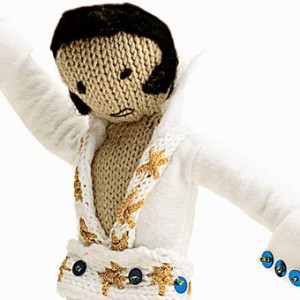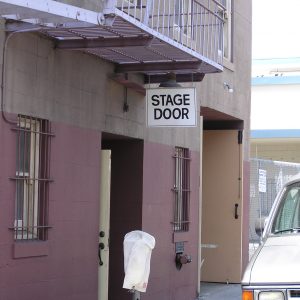
“There are only two types of (public) speakers in the world: (1) the nervous and (2) liars.” (Mark Twain)
Are you in Mark Twain’s first group? If so, you might be interested in the pre-show rituals of singers as a source of warmup tips. There are many good examples but my favourite was Elvis Presley and his famous ‘1000-yard walk’.
When singing at a large venue such as an arena, he would insist that his trailer was parked exactly 1000 yards from the stage. Why he did that, and how his idea could be adapted, are questions worth studying by performers of any kind, including speakers, who have to give of their best at a predetermined time and place.
Performance anxiety: even felt by performers who chose the life
It’s a known fact that many people fear public speaking. It is often done by people who don’t enjoy it but have to do it anyway: it might be a necessary part of their job, the might be the father of the bride, etc, etc. These reluctant speakers might logically assume that ‘all those other types of performers’ are doing what they do by choice, therefore will not be affected by nerves. That is very far from the truth; one hears many stories of famous actors and musicians throwing up in the wings before a performance.
Popular singers: Noel Coward was right
I’m focusing on musicians and I’ve looked at what they do to relax and get in the right mood before a show. I choose popular (rather than classical / opera) singers first, because (a) they are so high-profile we know the most about every detail of their lives; and (b) Noel Coward was right when he said: “Extraordinary, how potent cheap music is.”
Some of the examples I’ve discovered involve alcohol. Stevie Nicks of Fleetwood Mac apparently favours a shot of tequila; and Leonard Cohen used to suffer so badly from stage fright that he couldn’t go on without first downing two bottles of wine. That’s been severely moderated, I’m told, to one whisky. Probably a large one.
A non-booze solution comes from Chris Martin of Coldplay. He apparently brushes his teeth at the last minute, saying “I don’t feel smart if my teeth aren’t clean.” My daughter Madeleine, an actor and singer, tells me that it makes sense from a physical as well as a psychological standpoint, because it can help disperse any excess mucus in the mouth and throat.
Most surprisingly, the booze group did not include Robert Plant, the former lead singer of Led Zeppelin. His unique voice was described thus by Encyclopaedia Britannica:
“Exaggerating the vocal style and expressive palette of blues singers such as Howlin’ Wolf and Muddy Waters, Plant created the sound that has defined much hard rock and heavy metal singing: a high range, an abundance of distortion, loud volume and emotional excess.”
The owner of that voice, in his dressing-room before a performance, used to drink mugs of tea while ironing his stage clothes. “It gets me in the mood”, he said. Not very rock ‘n roll; but it clearly worked for him.
Elvis’s 1000-yard walk: the reason why
Perhaps the greatest idea, because it doesn’t require a dressing-room or a high alcohol tolerance, comes from Elvis Presley. I imagine that the atmosphere just before one of his shows was pretty hectic, with all the folderol that goes with a world-famous performer and an audience of thousands, including a large entourage. As I said at the top of this piece, when singing at a large venue he would insist that his trailer was parked exactly 1000 yards from the stage.
So what was the purpose of that walk? It was so that he could use the last few minutes before performing as a chance to get his head ‘in the zone’. No interactions, no conversation. Just a solitary walk of just over half a mile.
(Solitary? OK, he was probably surrounded by a phalanx of security men; but I’m sure they were under instructions not to talk to him.)
By the way, I am neither a believer nor a journalist for a tabloid. If I were either of those things I might claim that this pre-show routine gave Elvis the idea of recording the gospel song ‘Just a Closer Walk With Thee’, which he did several times. I don’t think the idea has any basis in fact, which doesn’t prevent it being a good story. “Too good to check”, as the journalists might say.
“Walk around the block”
How to adapt Elvis’s technique for those of us who don’t have a trailer and a large entourage? My advice was as follows: You don’t have a trailer? No problem. Go for a walk around the block. Arrive early, ensure things are set up as you need, ensure you’ve got water available for when you speak (preferably from a glass; but a plastic bottle is better than nothing), then go for a walk around the block.
If you still have time, go round the block again.
And if you don’t like Elvis, or his wonderful 1000-yard walk idea, my suggestion is to choose a musician you do admire, find out what rituals he or she uses to relax and control nerves, and copy them. I’m sure that your role-model would be pleased if they ever found out, because imitation is the sincerest form of flattery.


